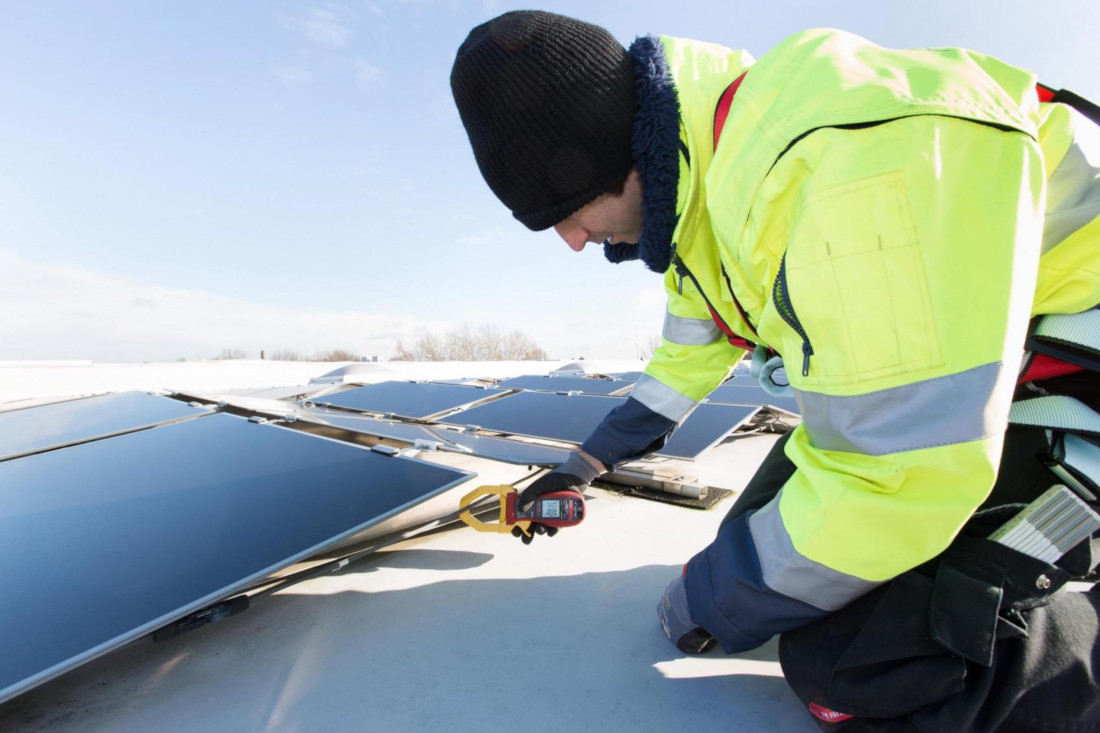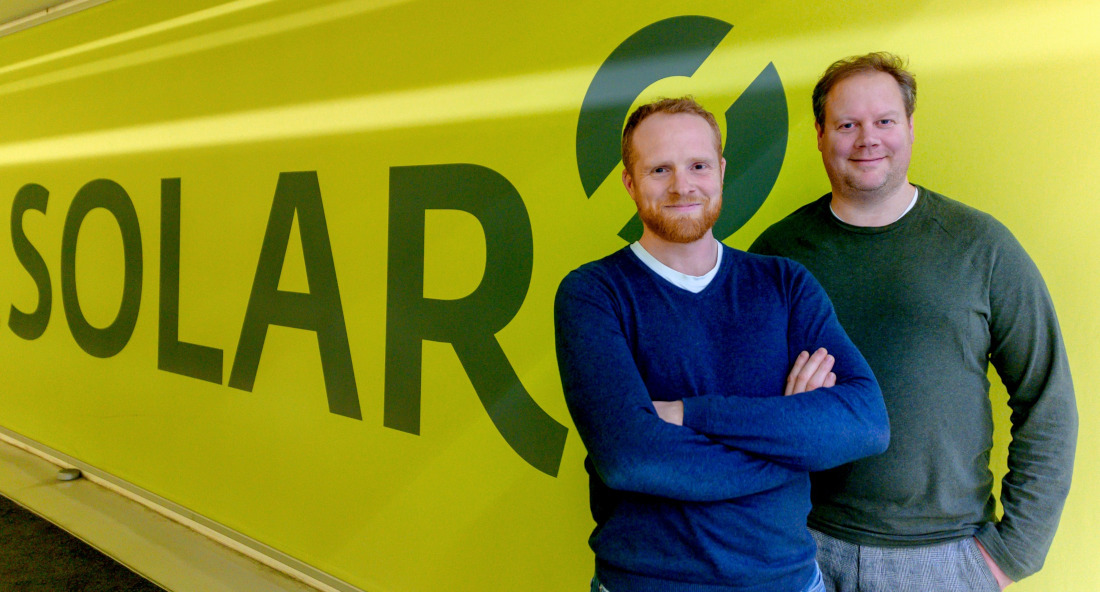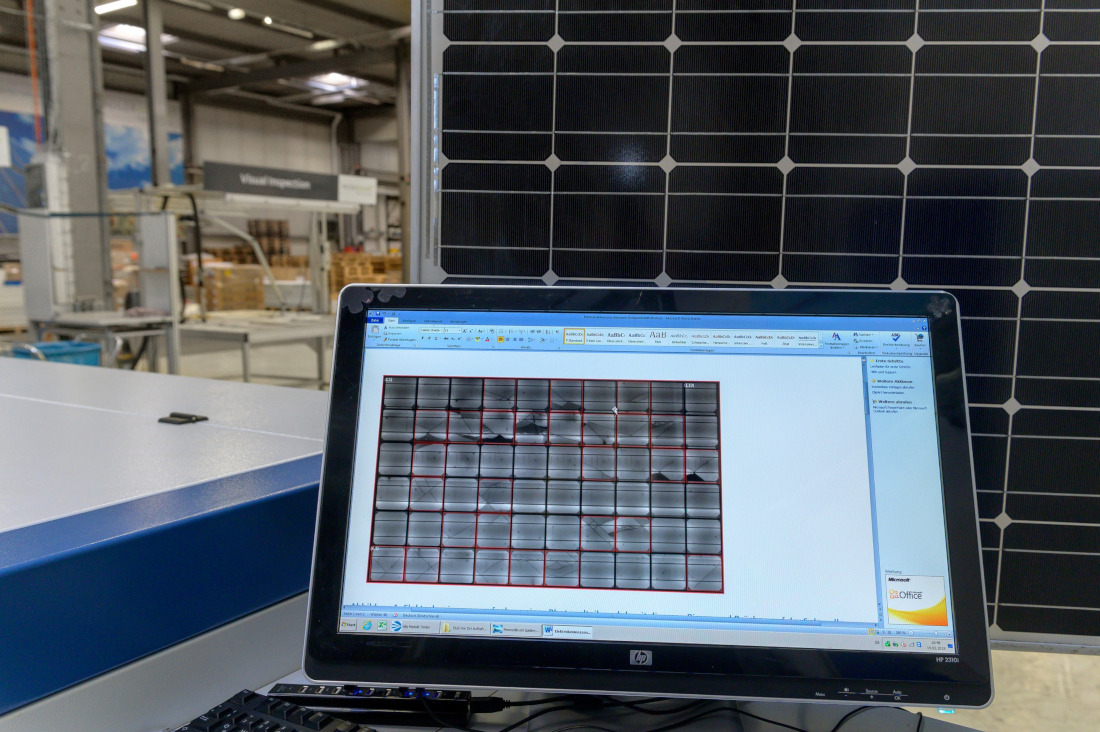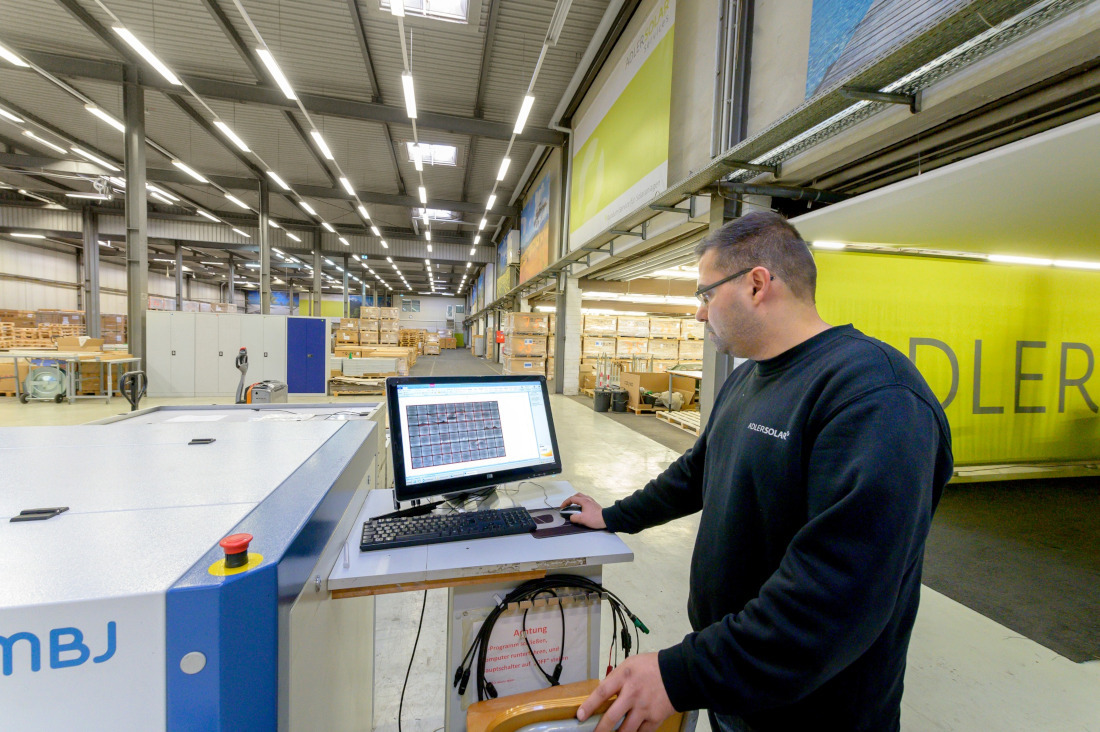Generating your own energy transition
Success storiesADLER Solar is working on energy solutions for the future

Gerhard Cunze and Ole Becker have a vision of their energy-efficient dream house, with solar panels on the roof producing electricity that is stored in a large battery, while at the same time a heat pump produces warm water from the air or the ground to heat the rooms. All very eco-friendly and carbon neutral.
Cunze, 45, is the managing director of ADLER Solar, and Becker is in charge of strategic management at the Bremen-based company. Both of them have a burning passion for alternative energy. “That sort of set-up could already make you 80 per cent self-sufficient today,” says Cunze confidently. It would mean having to buy only a fraction of the energy you require from electricity producers.
The two of them have been working on making the switch to renewable energy sources a reality for a long time. And while this may still take a few years at national level across Germany, these days everyone can simply generate their own energy transition. “Electricity costs are rising, while at the same time the cost of solar modules and battery storage is falling. This combination is an argument in favour of producing your own,” says Becker. That applies to private households as well as businesses.

Don’t sell it – use it
The Renewable Energy Sources Act has undergone a number of revisions over the last few years, which have led to a steady decline in feed-in tariffs. According to Becker, it is still worth building a photovoltaic system if you are hoping to make a profit from selling electricity. “But it becomes more interesting when I use the electricity I produce for myself, e.g. to run a business, to charge my car, or simply by storing it in batteries,” he explains.
ADLER Solar advises companies and private users on the financial planning, on legal obstacles and approval processes, and it also takes care of the technical implementation – installing modules and storage facilities.
Checking solar system performance
The road to becoming an energy service provider with a reputation across Germany was a long one for the company. ADLER Solar moved to Bremen in 2011, setting up shop in the Bayernstrasse business park. Back then their main focus was on testing photovoltaic modules – which is now one of three business segments. “Many older modules lose performance over the course of their operating life. Others become faulty – for instance through hail strike – but without the damage being visible. We can detect that sort of problem,” Cunze explains as he leads on through the company’s large hall. There are hundreds of solar modules here, waiting to be installed. It is also the location of the test centre.

At five testing stations, a handful of Adler Solar’s 45 employees are testing the performance of modules and repairing them. “We’ve put more than five million modules through our testing stations over the years,” estimates Managing Director Cunze. But that side of the business has tailed off a bit; these days testing is mostly done in situ, on roofs and in outdoor spaces. This saves having to dismantle and reinstall the modules, as well as reducing transport costs. ADLER Solar employs a mobile team for this work. Many modules are also tested by the manufacturers in China during production.
Better performance from existing systems
Testing existing systems is still relevant, however. “Commercial users should get their systems checked once a year,” Cunze advises. The maintenance team replaces defective modules and repairs anything that isn’t working properly. Although this is low-maintenance technology, faults are not uncommon. “Many business users in particular do neglect their systems, because they don’t have the time to devote to this matter on a day-to-day basis. But it is possible to improve the performance of existing systems by up to ten per cent.”
This includes what is known as ‘repowering’. Around ten years ago, during the days of the solar panel boom, a lot of low-quality modules were installed. This has resulted in a progressive performance deterioration, leading to an enormous loss of income. “Today, many systems produce a lot less output than they were originally approved for. We have developed a whole package of measures that halts this deterioration and restores the photovoltaics to their initial output rating,” Becker adds. This pays off very quickly, since many older systems still enjoy very attractive feed-in tariffs. Private households can also benefit from a check-up.

The sun is shining up north
ADLER Solar has a number of strings to its bow: service and testing, repowering, and designing, planning and building new systems. The company is well positioned for the future. This is important in an industry that has undergone enormous upheavals. In the past few years, German module manufacturers have completely disappeared from the market, and the regulatory environment changes frequently – sometimes at only a few months’ notice.
So it’s good to know that at least one thing has remained the same over the last eight years, and that is the company’s fondness for its location. “We are very happy to be in Bremen. We’ve got perfect links to our customers all over Germany, while at the same time being close to the ports where the imported modules arrive,” explains Cunze. “And Bremen itself still has plenty of scope for photovoltaics. There isn’t the spare land for building wind farms, but there are more than enough roofs for solar panels.”
Gerhard Cunze and Ole Becker are optimistic about the future, not least because of their involvement in local collaborations. For example with Bremen battery storage manufacturer Powertrust, or the wind farm operator wpd, who are going all out for eco-friendly power generation and consumption in Bremen’s new Überseeinsel district – with help from ADLER Solar.
Success Stories
Medium-Sized Companies in Bremen Showcasing the Full Range of the Local Economy
Medium-sized companies form the backbone of Bremen’s economy. They create jobs and produce goods that are in demand worldwide. Here is a selection of ten businesses that illustrate the diversity of Bremen’s economic landscape.
Learn moreMeasure, Test, Inspect – 11 Examples of Precision Engineering from Bremen
Not many people could name a manufacturer of metrology and testing equipment, but without their products we would not have space probes, aircraft or medical equipment. And Bremen is home to a whole host of these specialist companies.
Learn more8 Bremen Companies involved in Mass Spectrometry
If you want to get down to the smallest building blocks of our world, you need mass spectrometers. And there are few places in the world where there is such a high concentration of specialists and manufacturing companies and suppliers in this sector as in Bremen.
Learn more
